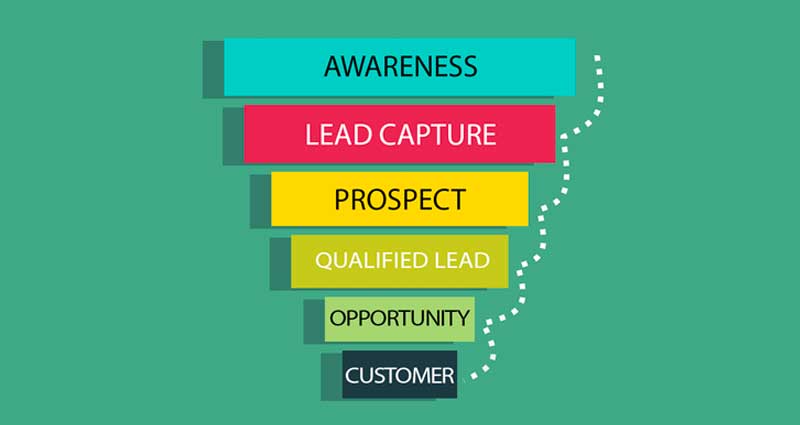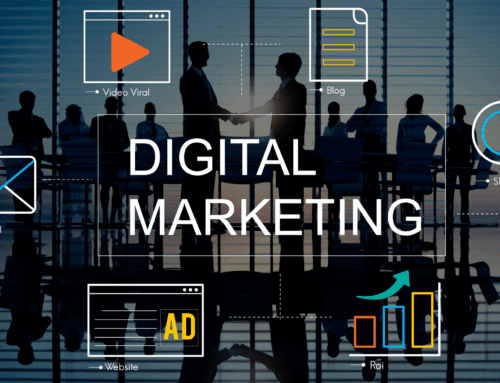Owning a business means selling products and services to generate revenue. However, a few questions come to mind in relevance to selling. Where can you find the right people to buy from your business? Do you have a strategy for capturing the interest of a potential customer? What need do customers have for your product or service? A lead funnel is a perfect answer to all these questions. Here’s why your company needs one.
What Is a Lead Funnel?
A lead funnel is an approach to generating leads through a series of steps. Think of it as a process of turning a qualified prospect into a high-quality contact that is likely to convert to a paying customer. Your business can generate traffic and enter these people into the funnel.
At every stage, a prospect will drop out of the funnel. Nevertheless, this strategy is concrete because it can filter out those who do not qualify as a good fit for your business.
Those who reach the end of the funnel qualify as a new lead for your business. Additionally, a lead funnel makes things much easier when it comes to generating qualifying prospects. One case study shows how a company developed over 1,000 leads in 9 months with a client marketing campaign.
Stages of a Lead Funnel
It’s vital to hire and organize a team of expert marketing and sales professionals to make your lead funnel work. About 56% of employees say strong company culture leads to job satisfaction. Those who are truly invested can help you build a substantial lead funnel to convert prospects into paying customers. If you decide to make one yourself, here are the main stages you can use as a guide:
- Awareness: Increase awareness for your brand through marketing.
- Lead capture: Capture leads through a sign-up form so you can nurture them into the following stages.
- Prospect: Constantly nurture your prospects into high-qualifying leads. Email marketing works best for this stage.
- Marketing qualified lead: Convince the prospect to convert by scheduling a demo or offering a free trial.
- Sales qualified lead: Start a screening process to see if the lead is a good fit for your business.
- Opportunity: This is where your sales team comes in. A salesperson will keep visiting the prospect to close the deal.
- Customer: This is the final stage of the funnel where you turn a prospect into a paying customer.
Simple Steps to Creating a Lead Funnel
Here are the stages of establishing an effective lead funnel.
1. Generate Traffic
Your business must generate traffic to gain prospects. Where does your ideal customer hang out online? How can they discover your services? You can use PPC (pay-per-click), social media advertising or content marketing as a way to get started.
Once you learn these facts about your target audience, you can persuade prospects to sign up through a lead magnet. This is a solution to a problem that your audience experiences.
2. Lead Magnet
Create a lead magnet by offering something your audience doesn’t already know how to fix. The offer should be relevant to their pain points and something they cannot resist. You can implement this strategy by creating a how-to guide, an e-book or a cheat sheet.
3. Landing Page
Simplify your landing page and ensure it corresponds with your social media or PPC ads for growing traffic. Here are a few tips for optimizing a landing page for higher conversion rates:
- Make sure your landing page has a fast load time. Users can lose patience quickly and back out if they need to.
- Create a CTA (call-to-action) above the fold, where it is more likely to be seen.
- Use links at a minimum to prevent people from leaving your site.
4. Lead Capture
This first step is where you capture the prospect’s information. Request only a certain amount of details because people do not want to spend too much time filling out information. A first name and an email address will suffice in exchange for a how-to video.
When offering a discount of service, ask for name, email, and telephone number. This will come in handy later when contacting the lead to schedule an appointment.
5. “Thank You” Page
This step lets you include details and next steps, so people know what they can expect. It also allows you to upsell. You can offer something that provides a solution to a relevant issue that will likely occur.
6. Follow-Up
If you want to finalize a sale, stick with a follow-up sequence. This step can involve email confirmations, SMS messages, calling for appointments and a welcoming email sequence. This is an excellent way of keeping your business in the minds of qualified leads.
Why Your Business Needs a Lead Funnel
You may be wondering if all this work is worth it. Here’s why it’s vital.
1. Helps You Focus and Expand
A lead funnel is a helpful strategy for giving you deep insights into which leads you can start pursuing. They also create an opportunity where you get to learn more about your prospects. This way, you can better understand who is ready to buy and who isn’t yet.
A lead funnel will allow you to make sales by targeting the right people. It can help you grow your business and generate more revenue.
2. Builds Awareness Around Your Brand
A lead generation funnel allows you to reach more people and establish awareness of your brand by generating prospects. While actively using keywords for search engine optimization and other forms of traffic generation, you can attract potential customers toward your offering. A strong lead generation funnel makes it simple to understand what steps to take when developing awareness.
3. Strengthens Relationships With Lead Nurturing
Sales can become a long-term process, especially if you work with larger accounts. A lead funnel strategy allows you to nurture leads, build relationships with potential customers and lead to more qualified leads. A funnel provides multiple points of contact for engagement.
4. Allows You to Make the Sale
A lead funnel is a specific design to help you make a sale by moving a qualified prospect through each step. You should treat each stage as a vital part of leading you down to the end goal. Achieving a successful lead funnel saves time in prospecting and eventually makes more sales.
Make the Most of Your Sales Funnel
A lead funnel finds the best leads and helps you understand your prospects. It’s an essential strategy for all businesses that want to be more efficient in prospecting and building relationships.
Essentially, a lead funnel is an excellent strategy for creating higher conversions and growing your business. Take some time to implement these best practices so it works effectively.









